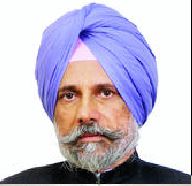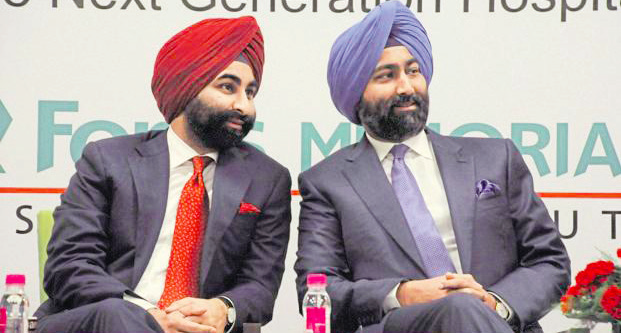

“Thus, the current attempt to weaken institutional base of democracy needs countering. The attack on the independence of media has been thwarted after uproar over the “fake news” order of the Ministry of Information and Broadcasting, but the recasting of the Press Council of India leaves doubts about government’s intentions. The attempt to bend judiciary to the executive’s dictates surfaced dramatically after open defiance of the Chief Justice by his four senior colleagues when they went public with their angst. The government, not seriously attempting to make Parliament function, poses further questions about its commitment to constitutionalism”, says the author.
The Lok Sabha eventually adjourned sine die after weeks of being non-functional. The Opposition’s no-confidence motion was ruled by the Speaker as un-implementable as the House was not in order. Under similar conditions, the important annual Budget was allowed to be passed without debate. Prime Minister Narendra Modi has called for all BJP members of Parliament to observe a one-day fast against disruption by the Opposition. The Opposition, on the other hand, has alleged that those disturbing the House were, in fact, allies of the government.
Denying Opposition the right to test the majority of a government sets a bad precedent as any government having lost majority can create conditions of chaos, with Speaker’s connivance, and preclude a floor test. Thus, a government can rule without a majority till its term ends while avoiding debate on important issues facing the nation. Democracies to succeed require not only written guidelines, but also many unwritten ground rules. Many books this year are addressing these fundamental questions.
In How Democracies Die, authors Steven Levitsky and Daniel Ziblatt reach into history for answers. They hypothesize that in the US post-election of President Donald Trump “politicians say and do things that are unprecedented in the United States”. They add that “American politicians now treat their rivals as enemies, intimidate free Press, and threaten to reject the results of elections”. Even more worrisome, they “weaken the institutional buffers of our democracy, including the courts, intelligence services, and ethics offices”. Finally, they note that in 2016 Americans elected a President, who for first time in US history, had “no experience in public office, little observable commitment to constitutional rights, and clear authoritarian tendencies”. Larry Diamond, an authority on democracy worldwide, believes the world has entered a period of democratic recession.
In India, too, as it enters the final year before parliamentary elections, attempts are afoot to weaken institutional sinews. India thus shares the global democratic recession referred to above. Of course, this is not happening for the first time, as worse was witnessed during the Emergency, or in the unwise move by the Rajiv Gandhi government to curb Press freedom via legislative action. Clearly, all Prime Ministers since the 1980s having single-party majorities have shown a tendency to override democratic principles.
Europe, which saw in the 1930s the rise of authoritarian leaders and parties in Germany and Italy, using democratic processes to enter the political space, is again witnessing the slow strangulation of democratic principles. Take the example of Hungary, which gained freedom from communist stranglehold after the fall of the Berlin wall in 1989. Despite the history of its brave, but unsuccessful fight to overthrow communist shackles in 1956, and the memory of authoritarianism, its PM, Viktor Orban, is today allegedly centralizing political and economic power unknown since communist times. He is using the bugbear of immigration and external threats from the likes of his old patron Soros, who gave him a scholarship as a young dissident to study at Oxford in 1988, to get re-elected after eight years in power.
Likewise, in Germany, the rise of extreme right-wing Alternative for Germany (AfD), particularly in former East Germany, is forcing other moderately right-of-center parties to adopt politics of identity and belonging. At the federal level, after the last election and following the new grand alliance, Chancellor Angela Merkel’s Christian Democratic Union (CDU) is, as The Economist states, “steering clear of culture wars in favor of bread and butter issues”. In faraway Costa Rica in central America, the victor Carlos Alvarado scored for liberal values by roundly defeating his fulminating rival Fabrico Alvarado who wanted to “put God in government”, targeting gays to start with. In Ethiopia, run for three decades by the Ethiopian People’s Revolutionary Front (EPRDF), this time, a charismatic and young Abiy Ahmed was elected by secret ballot among the top brass to be Prime Minister. Though hardly democracy in play, it showed a display of controlled freedom to choose a successor by all players representing different factions in the EPRDF. Whether this is the first step towards more open governance remains to be seen.
Against this background and the consolidation of power by Chinese President Xi Jinping, the banner of democracy and liberalism has to be carried by India. It is a misnomer to think of these values as imports from the West. There is enough historical evidence in Greek and old Indian sources that India had thriving republics even at the time of Alexander’s invasion, though they existed alongside kingdoms run autocratically. The Dalai Lama puts it in Buddhist terms saying that the Himalayas were never as pristine white till the light came from India. That light includes liberal values strewed across Indian religious and philosophical discourses.
Thus, the current attempt to weaken institutional base of democracy needs countering. The attack on the independence of media has been thwarted after uproar over the “fake news” order of the Ministry of Information and Broadcasting, but the recasting of the Press Council of India leaves doubts about government’s intentions. The attempt to bend judiciary to the executive’s dictates surfaced dramatically after open defiance of the Chief Justice by his four senior colleagues when they went public with their angst. The government, not seriously attempting to make Parliament function, poses further questions about its commitment to constitutionalism. That leaves the Election Commission as the last bastion to ensure free and fair elections. Many opposition parties are pointing fingers at the possibility of EVMs being tampered with. Belfer Centre at Harvard University has produced a report on EVMs in the US. In their federal system, the choice of machines is left to the states. The report calls machines, like the ones used in India, as “hackable”. It recommends the alternative machines used in the US, where vote is cast on paper and then scanned by machine. Thus, paper record remains in case of recount.
Karnataka election is a watershed moment for Indian democracy. If the BJP wins, it can draw a wrong lesson that people endorse its tactics. If it loses, PM Narendra Modi will have a choice to go for reforms or perish.
(The author is a former Secretary, Ministry of External Affairs)





Be the first to comment